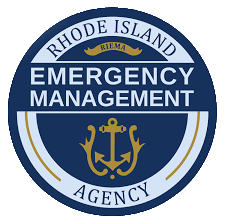Pandemics
A pandemic is a disease outbreak that happens all over the world. A pandemic disease is easily passed from person to person, and it can spread across the world in a very short time. The last flu pandemic in the United States was in 2009 when the H1N1 strain of flu emerged.
Pandemics can cause a lot of illness or death. Large numbers of people get sick at the same time and the entire healthcare system can quickly become overwhelmed. Older adults, young children, and people with chronic, long-term health conditions are more likely to get infected.
Learn how you can prepare yourself and your family before, during, and after a pandemic occurs by downloading our Pandemic Preparedness Guide.
Coronavirus Disease 2019 (COVID-2019)
The virus is thought to spread mainly from person-to-person.
Coronaviruses are a large family of viruses that are common in people and many different species of animals, including camels, cattle, cats, and bats. Rarely, animal coronaviruses can infect people and then spread between people such as with MERS-CoV, SARS-CoV, and now with this new virus (named SARS-CoV-2).
At-Risk Populations
Anyone can be infected with Coronavirus Disease. Outbreaks of novel virus infections among people are always of public health concern. The risk from these outbreaks depends on characteristics of the virus, including how well it spreads between people, the severity of resulting illness, and the medical or other measures available to control the impact of the virus (for example, vaccine or treatment medications). The fact that this disease has caused illness, including illness resulting in death, and sustained person-to-person spread is concerning. These factors meet two of the criteria of a pandemic. As community spread is detected in more and more countries, the world moves closer toward meeting the third criteria, worldwide spread of the new virus.
Symptoms
Current symptoms reported for patients with COVID-19 have included mild to severe respiratory illness with fever, cough, and difficulty breathing. Read about COVID-19 Symptoms.
The following symptoms may appear within 3-14 days of infection.
- Fever
- Cough
- Shortness of breath
Transmission
It may be possible that a person can get COVID-19 by touching a surface or object that has the virus on it and then touching their own mouth, nose, or possibly their eyes, but this is not thought to be the main way the virus spreads.
The virus that causes COVID-19 seems to be spreading easily and sustainably in the community (“community spread”) in some affected geographic areas. Community spread means people have been infected with the virus in an area, including some who are not sure how or where they became infected.
Prevention
- Avoid close contact with people who are sick.
- Avoid touching your eyes, nose, and mouth.
- Stay home when you are sick.
- Cover your cough or sneeze with a tissue, then throw the tissue in the trash.
- Clean and disinfect frequently touched objects and surfaces using a regular household cleaning spray or wipe.
- Follow CDC’s recommendations for using a facemask.
- CDC does not recommend that people who are well wear a facemask to protect themselves from respiratory diseases, including COVID-19.
- Facemasks should be used by people who show symptoms of COVID-19 to help prevent the spread of the disease to others. The use of facemasks is also crucial for health workers and people who are taking care of someone in close settings (at home or in a health care facility).
- Wash your hands often with soap and water for at least 20 seconds, especially after going to the bathroom; before eating; and after blowing your nose, coughing, or sneezing.
- If soap and water are not readily available, use an alcohol-based hand sanitizer with at least 60% alcohol. Always wash hands with soap and water if hands are visibly dirty.
Testing & Diagnosis
Currently, the Centers for Disease Control and Prevention is the only place that confirm the laboratory test to diagnose Coronavirus Disease.
Treatment
There is no specific antiviral treatment recommended for Coronavirus Disease. People with Coronavirus Disease should receive supportive care to help relieve symptoms. For severe cases, treatment should include care to support vital organ functions.
People who think they may have been exposed to anyone with the Coronavirus Disease should contact their healthcare provider immediately.
For additional information on the Coronavirus for Rhode Islanders, visit the RI Department of Health's website.
For Rhode Islanders traveling to the Caribbean, Central America, the Pacific Islands, and South America, visit CDC's Coronavirus Travel Information site to view Travel Notices and learn how to properly protect yourself from Coronavirus Disease while traveling.
